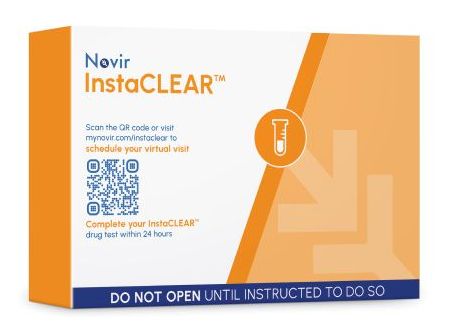Every employer needs a drug and alcohol policy, whether or not actual testing is conducted.
However, a policy not backed up by testing is at risk of failure. That is, if there is no testing, there is no deterrence.
Who will be tested — and when?
This question is one of many that must be asked when crafting a drug and alcohol policy.
Developing a drug and alcohol policy usually begins with the decision that there is zero tolerance for substance use in the workplace, and then defining what “zero tolerance” means.
A zero tolerance policy does not necessarily mean workers are automatically terminated with a positive drug test, but it does imply that there will be consequences. Those consequences could include required counseling, temporary suspension, eventual termination, and follow up testing.
In safety-sensitive positions where a co-worker and public safety is at risk, immediate job termination might be the consequence, but many employers offer ”second chance” or “last chance” agreements in an effort to work with employees they want to keep, and who are willing to accept counseling or treatment.
Ask the right questions to form your drug and alcohol policy
Though most employers will dictate policy, some find that workers are much more likely to embrace a drug policy developed in a partnership between employer and staff.
- Will a drug and alcohol testing program be implemented?
- What are the expected policy outcomes? Improved safety and productivity? Lower workers comp premiums?
- What are the management expectations for worker behavior for policy compliance?
- Under what conditions will testing take place? Pre-employment, post-accident, random?
- What drugs? How will you deal with medical marijuana? Recreational marijuana?
- How will “for-cause” be defined?
- Who determines whether a reasonable suspicion situation exists? Supervisor training.
- What is the basis for employee selection for random testing (i.e. by department, unit, job description, location, etc.)?
- What consequences should a worker face if they refuse to be tested?
- Employee Assistance Programs, counseling services, and who pays?
- Consequences for failing a test.
- What is the company policy on alcohol and drugs at workplace functions like office parties and other company functions?
- What incident reporting procedures will be put in place, including maintaining confidentiality.
- How is incident information documented?
- What type of training and education program will be instituted and who is expected to ensure employees are properly trained?
- What is the policy for an employee returning to work after completing counseling or treatment?
- What type of training is required for managers and supervisors?
Is this really necessary for a small business? Yes.
Developing a drug and alcohol policy is important for all sizes of businesses. Safety risks exist in the five-person business as well as the 500 person enterprise. And it’s much more painful for the smaller business.
A well-written policy protects the employer and employees and ensures legal and personnel requirements are met and integrated with the values of the organization.
Efficiency and consistency in your drug and alcohol policy
Written policies demonstrate professionalism as well as an interest in safety for all employees. And confidentiality is particularly important when administering a drug and alcohol program because of its sensitive nature.
In addition, written policies give teeth to enforcement of workplace rules. Drug and alcohol policies provide a framework for accountability and for measuring worker performance.
Employers are required to provide a safe place to work for all employees. And employees also have responsibilities to follow safety procedures.
A drug and alcohol policy gives employers and workers the information they need to fulfill their duties safely and effectively. Creating a written policy is the first step and begins by asking the right questions. Answering those questions with thought is the foundation of a safe, drug-free workplace.
InOutLabs provides drug testing services that support the policies and procedures put into place by employers. As a national provider of both DOT and non-DOT drug testing services, InOut Labs provides employers with greater legal defensibility and access to industry best practices.
Ask us about


